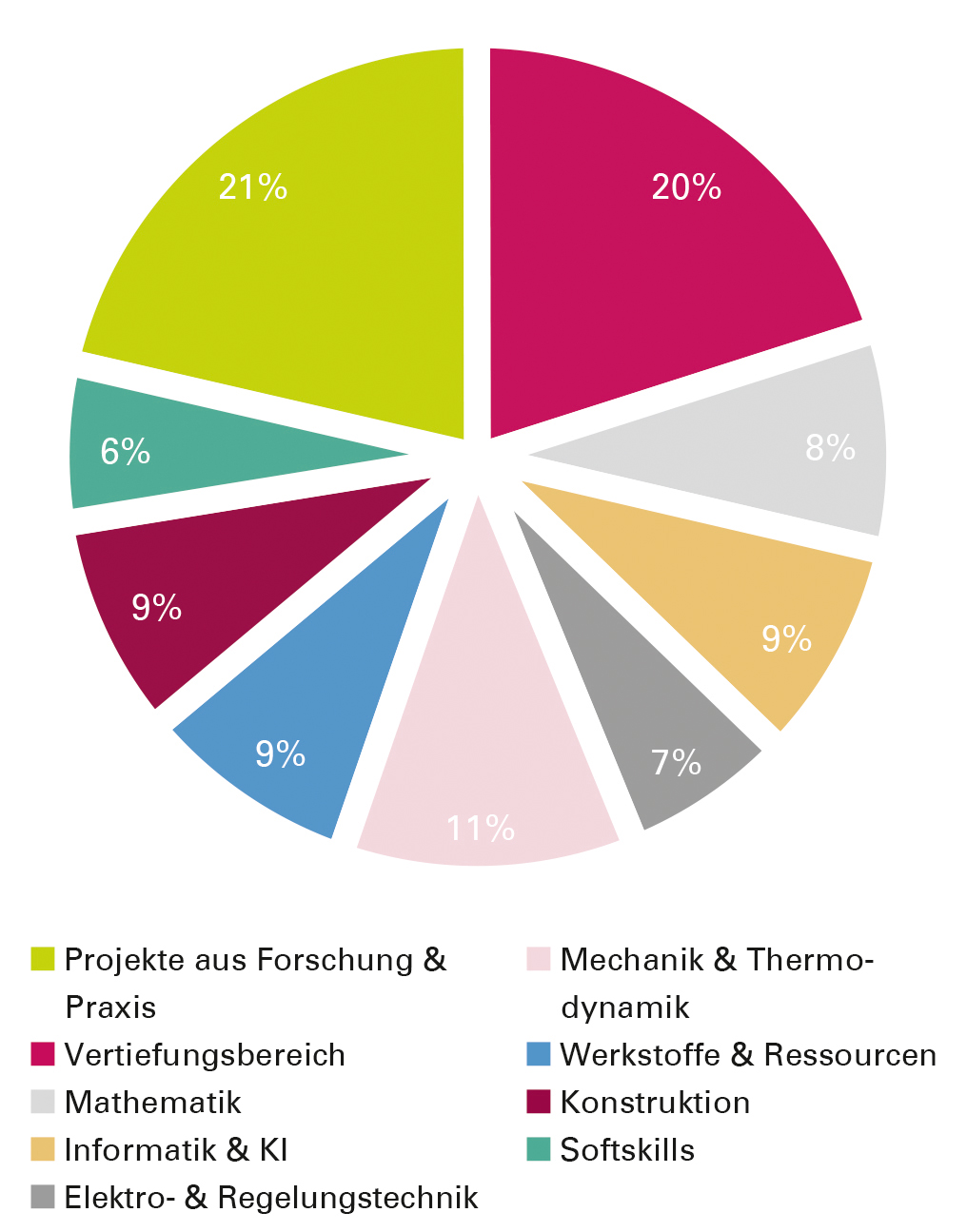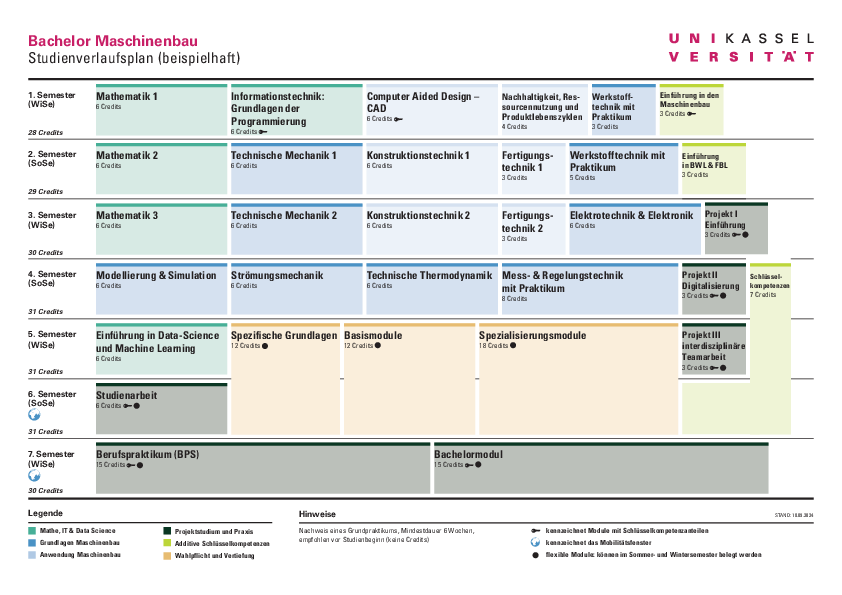How is the study program structured?
This page contains automatically translated content.

Basic Studies
The Mechanical Engineering Program in Kassel combines scientific orientation with practical relevance. In the first four semesters, Engineering Fundamentals are taught: These include:
- Mathematics and Computer Science
- Mechanics and Thermodynamics
- Electrical Engineering, and Measurement and Control Technology
- Production Engineering and Materials Technology
- Computer Aided Design (CAD) and Construction Technology
Main Studies
In the subsequent three-semester main course of study, students can choose between six specializations:
- Sustainable Materials and Manufacturing Processes
- Energy Technology and Environmental Technology
- Automation and Digital Transformation
- Modelling and Simulation in Applied Mechanics
- Human - Organisation - Technology
- Sustainable Vehicle Technology
In addition to the subject-specific content, great importance is attached to key competencies (soft skills) such as scientific work and presentation, languages, business fundamentals or project, quality and process management.
Overarching course content
The mechanical engineering course in Kassel combines scientific orientation with practical relevance. This begins in the first semester as part of a lecture series, where students are given an insight into current research topics. In the further course of their studies, students deepen their theoretical knowledge in interdisciplinary practical projects, such as the Herkules Racing Team or the Engineers without Borders Challenge.
In addition to subject-specific content, great importance is attached to key competencies (soft skills) such as scientific work and presentations, languages, business fundamentals or project, quality and process management.
Regardless of the chosen specialization, skills and knowledge in the following areas are continuously developed during the course of study
- project work,
- digitalization and automation,
- data science, machine learning and artificial intelligence as well as
- sustainability and resource conservation
in order to optimally prepare students for the working world in Industry 4.0.
